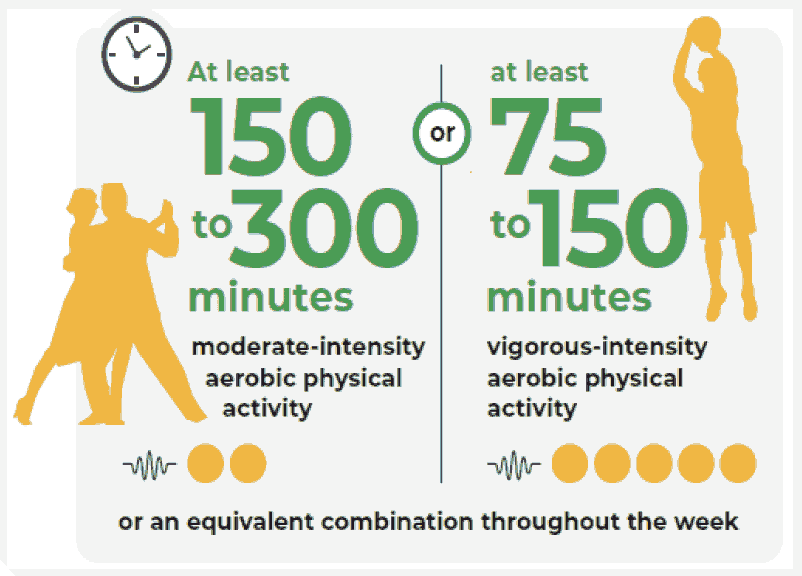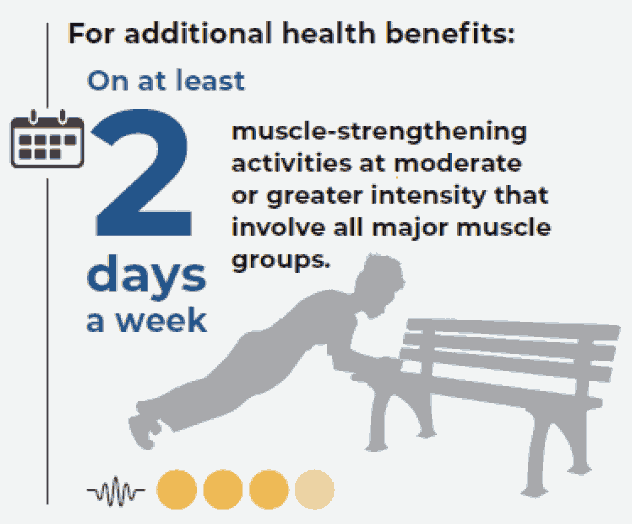5.2 Non-pharmacological Management
exp date isn't null, but text field is
Healthy lifestyle choices can prevent or delay the onset of high BP and can reduce cardiovascular risk. Non-pharmacological management (therapeutic lifestyle modification) remains the cornerstone of managing hypertension regardless of BP level. It is the first line of anti-hypertensive treatment. In addition to decreasing BP, it enhances antihypertensive drug efficiency and decreases total cardiovascular risk.
Following lifestyle intervention should be taken in hypertensive patients.
Achieving and maintaining ideal weight
All hypertensive patients should be encouraged to achieve ideal body weight, i.e., BMI of 18.5 - 24.9 kg/m2, however for Asians the normal range has been proposed to be 18.5 to 23.5 kg/m2. Weight reduction is most beneficial in patients who are more than 10% overweight. Overweight and obese patients need to be advised to take drastic action for reducing weight and may be referred to dietician for further management. Particularly abdominal obesity should be managed. A practical target for overweight patients is a minimum reduction of 5% in body weight.
Limiting total salt intake to <5 gm /day
Reduction of sodium or salt intake results in reduction of blood pressure. WHO recommends limiting daily salt intake less than 5 g per day or which is about one teaspoon full per day. In Bangladesh, most of the salt in diet are added during cooking or taken during meal as extra salt although salt from processed food intake might also be important as availability of processed food, juice and beverages are increasing. Clinicians should inquire about salt intake by interview; aim for achieving a target range of 90-130 mmol per day (3-7 grams per day) and provide advice on reducing usage in cooking and seasoning and choosing low-salt foods (e.g., choosing fresh fruits and vegetables and avoiding preprepared foods). The removal of the salt cellar from the table and a gradual reduction in added salt in food preparation should be recommended. Patients must be informed that food may taste bland initially and that taste adaptation to reduce sodium intake occurs with time; the use of lemon juice, herbs and spices as alternative seasoning should be encouraged.
Healthy Diet
Eating a diet that is rich in whole grains, nuts, fruits, vegetables, polyunsaturated fats and dairy products and reducing food high in sugar, saturated fats and trans fats helps in lowering blood pressure.
Healthy Drinks
Discourage excessive consumption of tea, coffee, and other caffeinated drinks.
Physical Activity
Adults should do at least 150–300 minutes of moderate-intensity aerobic physical activity; or at least 75–150 minutes of vigorous intensity aerobic physical activity; or an equivalent combination of moderate-and vigorous-intensity activity throughout the week, for substantial health benefits. However, adults should also do muscle strengthening activities at moderate or greater intensity that involve all major muscle groups on 2 or more days a week, as these provide additional health benefits.

Exercise bouts can be continuous or accumulated in shorter periods throughout the day. The benefit of exercise is dose dependent. Aerobic type exercise is more effective than exercise which involves resistance training, (e.g., weightlifting). Patients with uncontrolled hypertension should only embark on exercise training after evaluation and initiation of therapy. Suggested activities are brisk walking, swimming, gardening, taking staircases instead of lift etc18.



Avoiding tobacco use
This is important in the overall management of patients with hypertension in reducing cardiovascular risk. Smoking can acutely increase BP. Counseling for quitting should be done for smokers and smokeless tobacco users. Nicotine replacement therapy may be used for a smoker with hypertension while under medical supervision.
Avoiding alcohol drinking
Alcohol has an acute effect in elevating BP. Hypertensives who are heavy drinkers are more likely to have hypertension resistant to drug treatment. The only way to reduce these patients' BP effectively is by stopping their alcohol intake.
Others
These include stress management, micronutrient alterations and dietary supplementation with fish oil, potassium, calcium, magnesium, and fibre. However, they have limited or unproven efficacy. Overall relaxation interventions were associated with reductions in systolic and diastolic blood pressure and clinicians should encourage stress relaxation by yoga, meditation (including religious activities), stretching and breathing exercise as appropriate.
LIFESTYLE MODIFICATION ADVICE FOR ALL PATIENTS
* Stop all tobacco use, avoid secondhand tobacco smoke.
* Stop taking alcohol.
* Increase physical activity to equivalent of brisk walk 150 minutes per week.
* If overweight, lose weight.
* Eat heart-healthy diet:
o Reduce dietary salt intake
o Eat ≥ 5 servings of vegetables/fruit per day.
o Use healthy oils, such as soyabean, sunflower, olive, sesame (Til).
o Eat nuts, peas, whole grains and foods rich in potassium like spinach, watermelon, yogurt and banana.
o Limit red meat to once or twice a week at most.
o Eat fish or other food rich in omega 3 fatty acids at least twice a week.
o Avoid added sugar from sweets, cakes, cookies, fizzy drinks, sugar sweetened beverages.
